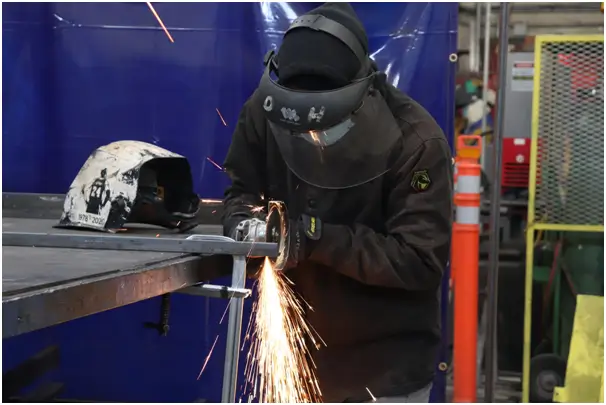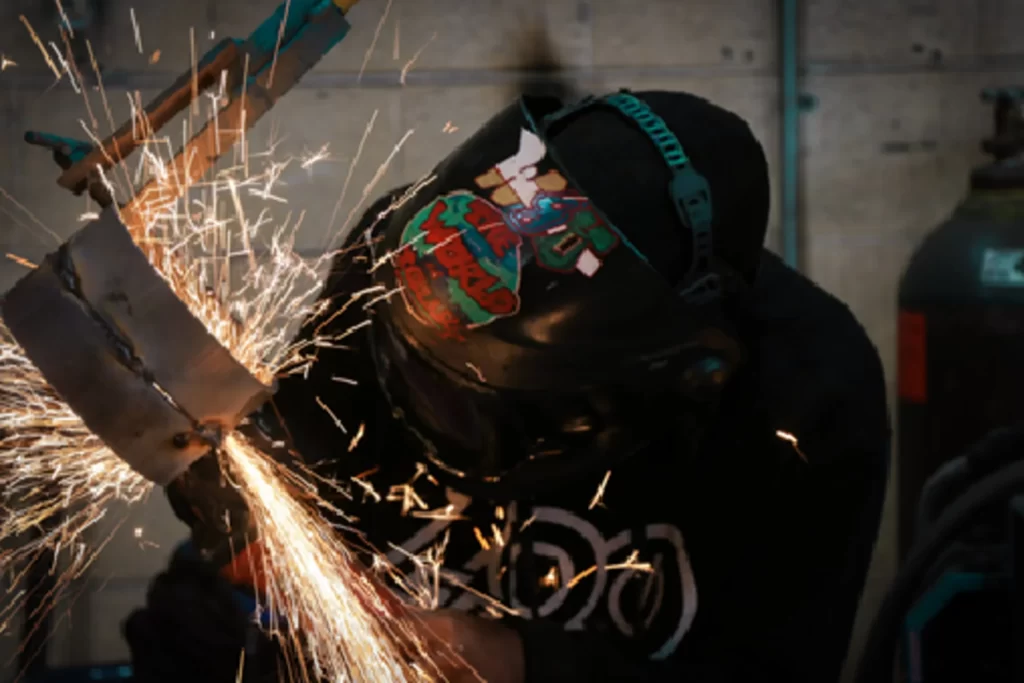Welding is a construction work generally utilized for joining materials through heat application. A skilled welder specializes in joining metal parts using various welding methods. Welding is a procedure that involves melting the edges of two or more metal portions and fusing them to form a durable and robust bond. A skilled welder requires precision, technical understanding, and the ability to analyze drawings, blueprints, and welding characters. Welders use specialized tools, including welding torches, machines, electrodes, filler metals, and protective gear. Welders are engaged in various industries.
Welders play a significant role in fabricating metal structures, elements, and equipment. They are essential for welding repair work in different skilled trades industries. Professional welders are in great demand, as their expertise is needed to assure the integrity and quality of welded joints, chipping into the construction of a wide span of products and structures. The duties and details of a welder’s job can differ depending on the industry, but here are some general responsibilities of welders:
Welders are skilled in numerous welding techniques, such as GTAW (Gas Tungsten Arc Welding), SMAW (Shielded Metal Arc Welding), and GMAW (Gas Metal Arc Welding). Professional welders train to excel at different types of welding. They select appropriate techniques based on the materials being welded and project requirements.
Professional welders learn to read blueprints during welding class. Welders analyze technical drawings and blueprints to understand a welding project’s prerequisites. They specify welding symbols, dimensions, and tolerances to ensure accurate welds.

During welding training apprentices learn material preparation. Before welding programs, welders equip the materials to be joined. This involves cleaning, grinding, and shaping metal components to the specified dimensions using tools like shears, grinders, and plasma cutters. They also deduct rust, paint, or other adulterants that can influence the quality of the weld.
Welders are accountable for setting up and maintaining welding tools. Welders learn welding equipment setup during their welding training. This includes choosing the appropriate welding machine, wires, electrodes, shielding gasses, and other consumables needed for the specific welding process. They ensure the equipment is calibrated and in good working condition and pursue safety standards.
Welders perform welding by applying heat to the metal parts to be joined and put in the filler material. They control the welding parameters, like amperage, voltage, and travel speed, to achieve optimal weld quality. Welders in the welding industry must maintain precision, accuracy, and consistency while welding.
Welders examine the completed welds to ensure they meet the crucial quality standards. Quality standards vary with different types of welding.They review for defects like cracks, incomplete fusion, or excessive spatter. Welders may utilize visual inspection methods, non-destructive testing (NDT) techniques like ultrasonic or X-ray, and destructive testing procedures when required.
Welders prioritize safety in the welding work. They obey safety protocols, wear appropriate PPE like gloves, safety glasses, and helmets, and ensure proper ventilation in confined areas. They are acquainted with safety regulations and codes related to welding procedures.

Welders may be accountable for the maintenance and repair of welding tools. Tool maintenance is essential for welding repair and maintenance work.They troubleshoot equipment problems, perform routine maintenance assignments, and replace faulty parts. Appropriate care assures the reliability of the welding equipment.
Welders work as a team, collaborating with engineers, supervisors, and other tradespeople. They may be required to communicate effectively to comprehend project requirements, report progress, and conform to tasks. Good communication aptitudes help assure a smooth workflow and completion of welding projects.
Skilled welders must be updated with the recent welding techniques, materials, and safety measures. They may attend training programs and workshops or pursue certificates to improve their skills and knowledge. Continuous knowledge is vital in the welding career to adapt to evolving enterprise standards and advancements.
Read More
Find a sterile processing trade program now!Discover Program

Search no more for sterile processing trade programs of your interest.
